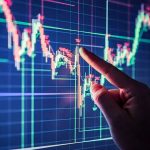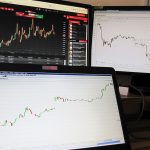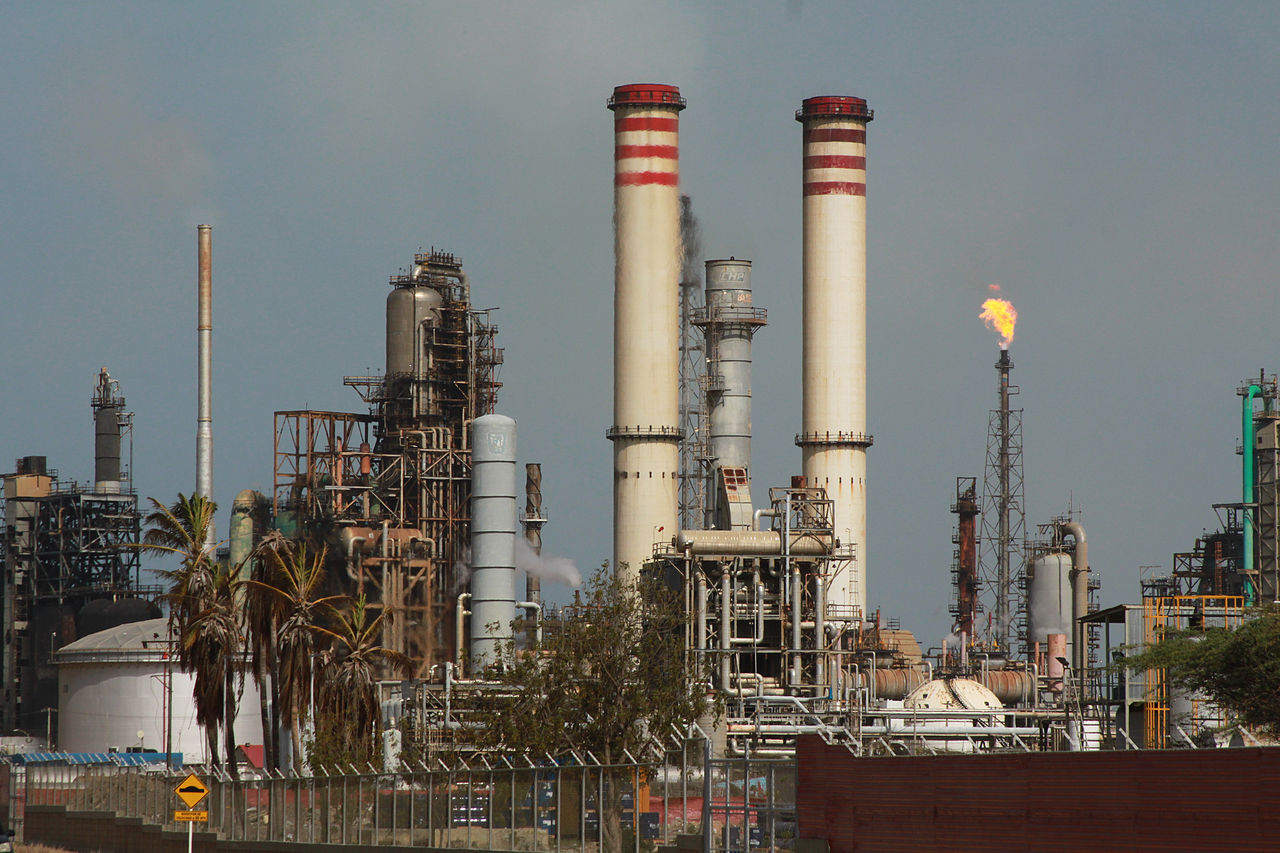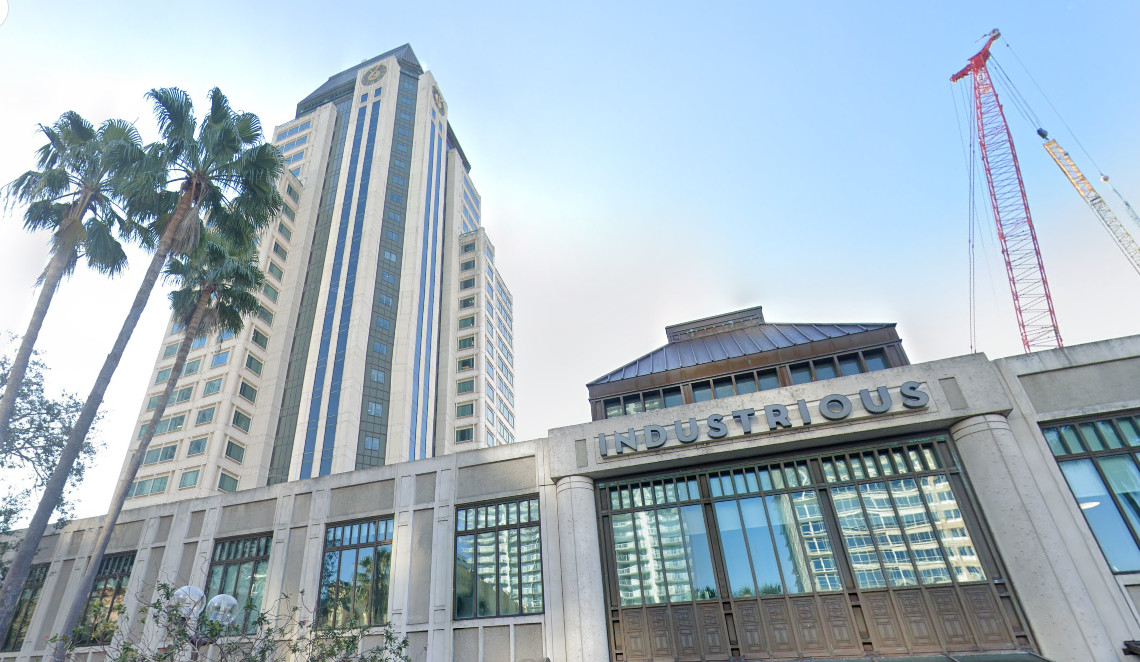CARACAS, Venezuela (ViaNews) – One of the first things that come to mind when thinking about Venezuela is its natural resources, but more specifically it’s oil. The indigenous communities knew well enough how to use this powerful resource before the arrival of the Spaniards, in fact, oil was used as a medicine to cure some diseases.
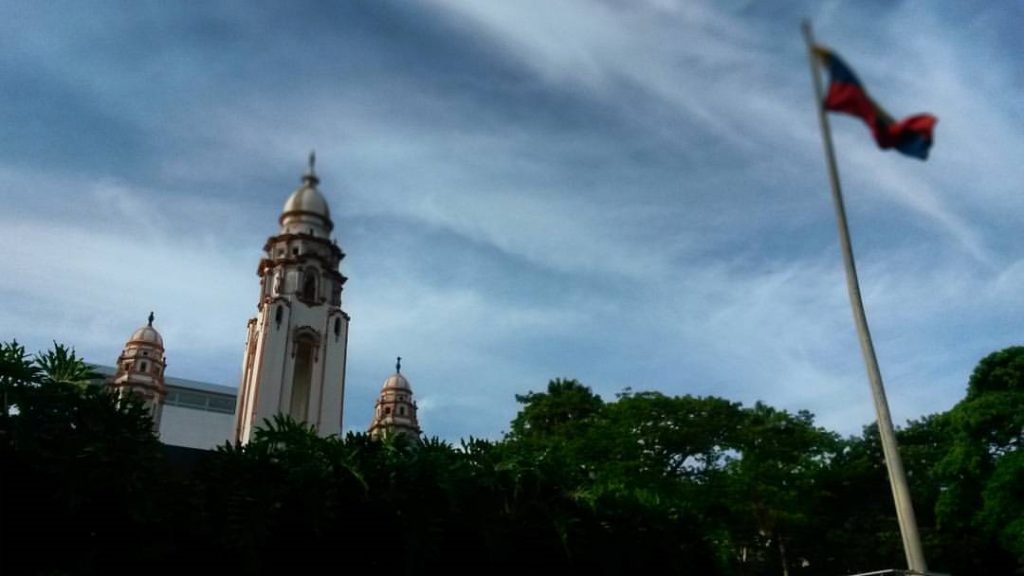
Two years after the arrival of Juan Vicente Gómez as the President of Venezuela in 1910, he started to grant concessions to explore, produce and even refine oil. These concessions were made to Gómez’ closest friends, who, in turn, pass them over to international companies such as the Caribbean Petroleum Company (later acquired by Royal Dutch Shell), and to Rockefeller’s Standard Oil Company.
Then came the World War I, and its repercussions were immediately felt in Venezuela, mostly because oil companies were no longer able to afford the processing and transporting of oil, therefore the oil industry development in the Caribbean country slowed down drastically.
However, it was during 1922 when a well was blown-out in Cabimas that brought Venezuela to begin to forge its reputation as a major oil producer in modern day history. This lead to other companies – and nations alike- to start paying attention to the once isolated country known for relatively smaller exports: coffee, sugar cane and cacao beans.
Medina Angarita was the President of Venezuela when new laws were enacted: one of this was the Hydrocarbons Law of 1943 which was one of Venezuela’s biggest political and economic steps because it gave the government more control over the growing oil industry. This meant that for the first time in Venezuelan recent history, the government would take a 50% of profits instead of the 40% (or sometimes even less) that the government used to take in oil negotiations.
It can be argued that this was the birth of the Petro-State that Venezuela now is because oil’s share exports increased just before the Second World War and continued at a steady pace due to the fact that there was also an increase in the number of vehicles circulating in the United States of America. Venezuela was now thriving (and becoming more dependent) on the international oil markets, and sadly, it was also declining in the agricultural production, thus, its attempts to industrialize the country were almost non-existent.
“La Gran Venezuela”
During 1973 the first oil embargo took place in the Middle East, this led to a sharp rise in world oil prices for the next two consecutive years or so. Carlos Andrés Pérez was elected as the President of Venezuela, promising to bring a “Grand Venezuela” to international awareness, and by doing this, he would reduce the nations’ poverty, diversify Venezuela’s economy and lastly, he would nationalize the oil industry in 1976 with the creation of Petróleos de Venezuela (PDVSA). Alongside Pérez’ scheme came some other negative consequences, such as debt, inflation and a drop in the price of oil during 1980’s when all the OPEC members’ broke off the promised and established production quotas.
Hugo Chávez’ Era
Chávez officially came to power in February 1999. During 1973-1998 OPEC’s influence had greatly declined on the world’s oil industry, partly because other countries started expanding their own economies by improving the oil industry, such as Mexico and Russia, and, partly, because allegedly the OPEC member states were not respecting the quotas on the production of barrels per day.
President Chávez saw a big loop here, thus, he helped with the reinforcement of the OPEC as an international bloc and ally. In fact, Venezuela hosted the first summit of the heads-of-state of the OPEC member countries’ in 25 years. However, International Relations and Geopolitics play an important role in this story, because even though the meeting was a success and oil prices started to increase, this was also during the 11 September 2001 attacks in the United States of America, the Iraq invasion, both China and India started demanding more oil to boost their own economies, and, during 2002 it was also the oil strike in the Caribbean nation so Venezuela lost an incredible amount of oil production. These situations helped the rise of the international oil price.
US and Venezuela’s Relationship
A diplomatic relationship between these two countries was first established in 1835. Soon after the ‘discovery’ of oil, a stronger bilateral economic relation started emerging, and the United States became Venezuela’s largest trading partner.
Throughout the years, Venezuela has been a dependent on the United States’ economy, from the beginning of oil extraction to the increasing amount of oil shipped to the U.S during 1929’s Great Depression and the Second World War, and later with the fight against communist states in the world, Venezuela had always remained truthful and loyal to North American interests, even if it meant a small percentage of Venezuelan’s own interests was being covered.
If one fast-forwards to Chávez period (1998-2013), one can see that he was one of the most vocal worldwide leaders against the imposing North American government (both with Presidents George W. Bush and Barack Obama). In 2011, the then Secretary of State, Hilary Clinton, imposed new sanctions on PDVSA, for delivering three cargoes to Iran, between 2010 and 2011, which were later lifted in 2016. Despite Chávez’ repeated comments on the media against the US government, and his well-document official (and non-official) visits to the leaders of countries that are against the US foreign policy, several of the deep-rooted problems in Venezuela remained the same.
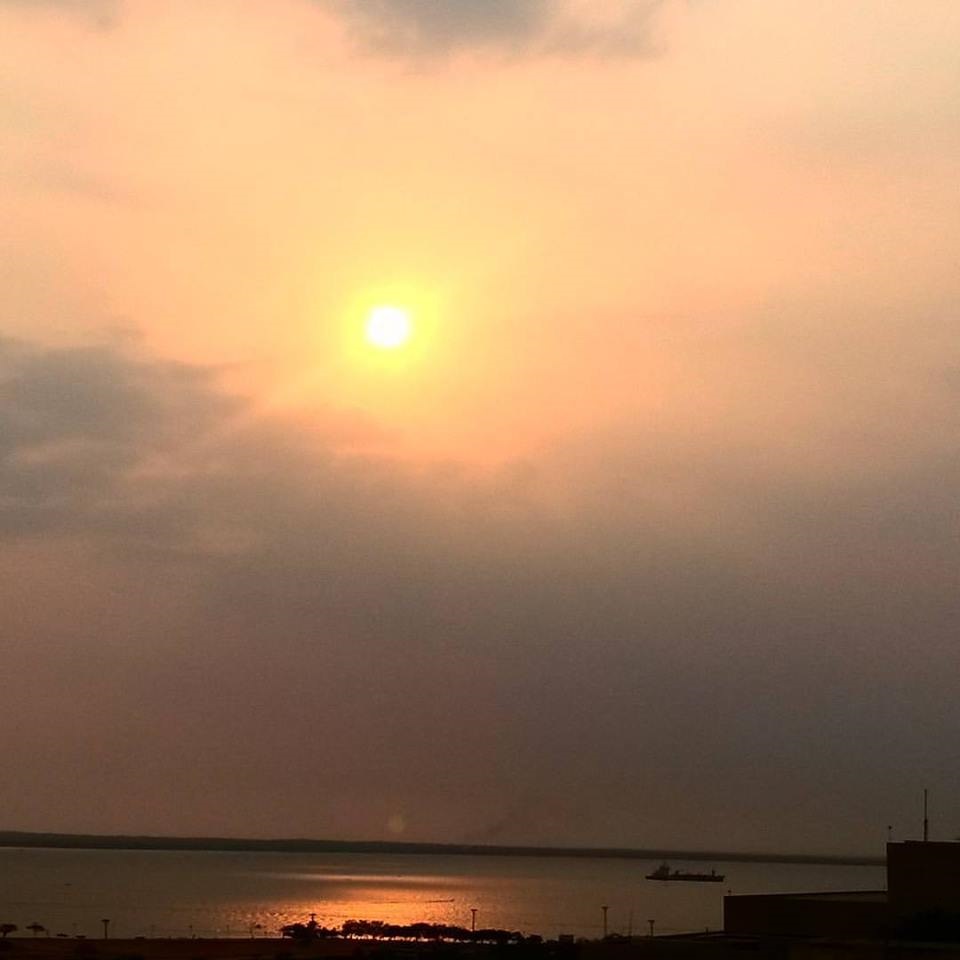
Both under Chávez and Maduro’s administrations, Venezuela has threatened to cut off its oil exports to the North American market, but, what politicians usually keep quiet about is the fact that these two countries are mutually dependent, in other words, both of the countries will face tremendous problems if they decide to halt their bilateral relations, not only because Venezuela supplies 491,340 barrels per day (bpd)1 of crude oil to the US, but lately because of the devastating effects that the Hurricane Harvey has had, oil production and even oil transporting in the US has been incredibly difficult to make, because crude oil is the main import from Venezuela to the US, in fact, Venezuela is on the top five suppliers of foreign oil to the US.
However, PDVSA is also struggling on its own national soil as it had recently discovered really think oil which is defined as ‘extra heavy oil’. Without the facilities in Venezuela to process all of it, the South American company has had to dilute it with light crude that imports from the US. In other words, US mainly exports to Venezuela are petroleum and refined petroleum products, machinery, organic chemicals and agricultural products. It also means that PDVSA (who fully owns five refineries that are in US’ soil and it remains in a partnership on another four refineries with the US through PDVSA’s US subsidiary, Citgo), would find itself in a difficult situation when trying to dilute the crude oil it produces in the South American country.
This means that the only thing that has been stable within this relationship has been the continuous importing and exporting transaction on the crude oil and oil products between these two countries.
In 2015, Barack Obama announced a new Executive Order that dealt with the blockage of property and suspension of entries of certain people, that had contributed to the worsening situation in Venezuela. These sanctions were later renewed in March 2016, but this time under the government of Nicolás Maduro.
This Year’s Timeline
At the end of July, President of US Donald Trump’s administration, US National Security Adviser, H.R McMaster said “Maduro was not just a bad leader, he’s now a dictator”. And immediately imposed new sanctions to high-level Venezuelan government officials, including the Venezuela’s Bolivarian Republic President Maduro, Vice President Tareck El Aissami, eight Supreme Court justices and thirteen top officials involved in organizing the National Constituent Assembly.
Moreover, on August 25th, US President Trump, signed a new executive order that prohibits dealings in new debt from the Venezuelan government or PDVSA. These new set of sanctions have become the first direct sanctions that will have an ultimate effect on the Venezuelan’ economy, so much so, that President Maduro has claimed that the US is waging an economic war on Venezuela and the new sanctions only want to force Venezuela to default, however, the US government will not succeed in doing this.
Why these new sanctions are different from the previous ones? Because it directly attacks the already weak Venezuelan economy, due to the fact that US’ banks are barred from dealing with new debt and equity issued by the government of Venezuela and PDVSA. Also, financing for most commercial trade, including the export and import of petroleum, thus transactions involving CITGO, will also be affected by this new measurement, because the utilities it produces will not be remitted to the Venezuelan government.
Furthermore, these sanctions truly complicate the already critical situation that Venezuela faces when it comes to the foreign currency presented in the country, especially since President Maduro must pay on the last trimester of 2017, an international debt that is worth more than US$4 billion.
In the Meantime
Rafael Ramírez, who for many years was the President of Petróleos de Venezuela (PDVSA), and is now the Ambassador of Venezuela in the United Nations Organization, has recently stated that Venezuela has other known markets where it can sell the oil that is currently selling to the US. He also mentioned that the refineries in the west of the US are specially designed to process heavy crudes like the ones found in both Venezuela and Mexico.
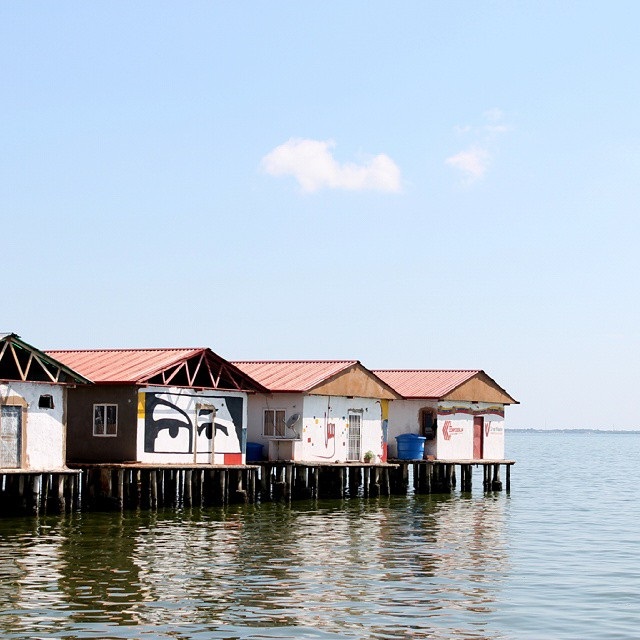
Perhaps he is referring to China and Russia’s market, whom over the last decade or so have drastically increased the number of bilateral negotiations of oil production in the Caribbean country. He also mentioned that the US is only trying to bring Venezuela to default.
On the other hand, Maduro has acknowledged that Venezuela has been paying its international debt over the last 24 months, without missing a single payment. So, people should not be worried about a worsening economic scenario in the country, as Venezuela, once again will recover from the US sanctions. Now, what the President has failed to mention is the fact that the debt he is referring to has indeed being paid, but he has used some doubtful mechanisms such as refinancing, restructuring or even creating new debts in order to pay off the previous ones. He even created new financial operations with Goldman Sachs in May 2016, where he ‘sold’ PDVSA bonds that would cover the international debt, with a 69% discounted rate.
The sad reality is, however, that a lot of international big firms have kept investing in the profitable Venezuelan debt, mainly because the Venezuelan government will continue to pay off the international debt. If it doesn’t, it will mean that a legal action will be taken by other states or international institutions against the Caribbean state, thus, a confiscation of oil or other assets will be made against the country.
Venezuela: Another Capitalist Nation of the XXI Century
Throughout the last decade or so, it’s fair to say that an enormous amount of PDVSA’s revenues were used towards the implementation of social, cultural, and health projects, that have actually helped many millions of Venezuelans. However, it is unfair to say that Venezuela became the first socialist nation of the XXI century. In fact, one could argue it has been quite the opposite. Venezuela has remained a capitalist economy because the mentality of the Venezuelan people has not changed accordingly to the new times it faced.
This means that most Venezuelans became even more dependent on the national oil industry, instead of creating new ways of employment or new industries that will help improve the overall wellness of society. On the other hand, most Venezuelans continued with the same old mentality of consumerism, which is deeply rooted in a capitalist society.
And above this, Venezuela has not remained true to its sovereignty principles. This is because Multinational Corporations have thoroughly enjoyed the Venezuelan oil, but also, they have accumulated impressive amounts of money throughout the years of Chavez’ and Maduro’s administrations. What has been continuously presented throughout their governments is that on the one hand there is an ‘international respected company’ that offers to buy bond papers to a government that is often represented as a ‘dictator’. On the other hand, this so-called ‘dictator’ continues to pay off the international debts he inherited and he also created to the same international banks and other states that have continuously destabilized the Caribbean economy.
An Extreme Case of: “He said, she said”
The August’s sanctions against the Venezuelan economy have been greatly received by those who oppose the Maduro’s government. The main opposition coalition (which is right wing in its majority) MUD, published a statement welcoming the US executive order and asking other states to do the same against the Venezuelan government.
Furthermore, the newly created Asamblea Nacional Constituyente (ANC in Spanish, or National Constituent Assembly), has approved a decree against the US financial blocking against the ‘Venezuelan people’. Moreover, when the first Vice-President of the PSUV (or the United Socialist Party of Venezuela), Diosdado Cabello read the decree, it said that a “historical trial will be made for treason against one’s country, against those who are involved in promoting the immoral actions against the interests of the Venezuelan people”, which could be a sentence of up to 30 years in prison, according to the current national Penal Code.
Venezuela Makes Donations
On Wednesday the 30th of August, Venezuelan Foreign Minister Jorge Arreaza said that Venezuela will donate US$5 million to aid recovery efforts in the US’ states of Texas and Louisiana after the hurricane Harvey passed around these areas. The ways in which this help will be delivered are not clear, however, he also said that a percentage of all gasoline sales from CITGO will be going towards the construction of homes for the victims of this hurricane.
In other times, this act of solidarity would have been well-received by both the US and Venezuelan people, however, on the 21st of August, a tourist beach called Choroní which is in Aragua state, was hit by non-stop raining that has caused severe flooding in the area and has led to at least 4 people dead, leaving hundreds injured, many missing, and some other hundreds are left stranded because there is no possible way to go out of this area. Both the President of Venezuela, nor the government (or the opposition for that matter) have spoken much about this tragic situation.
Also, this aid comes five days after President Trump signed the sanctions that will ultimately harm Venezuela’s economy and Venezuelan people. It is almost as if the Venezuelan government has decided to keep a short sight on the damage that, themselves might be doing to the ordinary Venezuelan worker, but also, is keeping a short sight on the damage that the US government might also cause on the Venezuelan people.

